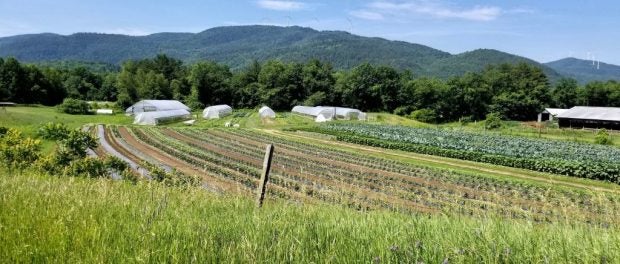Soil Health and Climate Resiliency Act – NY

The New York State Soil Health and Climate Resiliency Act – 2021
With over seven million acres of farmland in New York State, the solution to healthier food, more profitable farms, and protection of natural resources is beneath our feet.
The New York State Legislature has passed S.4722A/A.5386A, which will establish the New York Soil Health and Climate Resiliency Act to enhance and maintain the health and resilience of agricultural soils. The bill will be delivered to Governor Andrew Cuomo to sign into law later this year.
“Soil is a foundational resource that supports food production and impacts many broader ecosystem services like water quality and climate mitigation,” said Harold van Es, professor of soil and crop sciences at Cornell University. “New York farmers and institutions have been leaders in advancing soil health practices, and this legislation allows the state to implement sustainable soil management at a much broader scale.”
Insights from the 2020 NYS Soil Health Characterization study, co-led by van Es and Joseph Amsili, extension associate in soil and crop sciences at Cornell, are included in the bill and enable New York state policymakers, agricultural professionals, and farmers to set better goals for improving soil health and carbon capture based on their unique soil conditions and management practices.
“This legislation has for the first time linked New York farm, water quality, and climate change policies into a win-win-win strategy that will increase the resilience of farms and communities, protect water resources and expand the role of our farms in meeting state climate goals by storing more carbon in soils,” said David W. Wolfe, professor of plant and soil ecology at Cornell and project leader of the New York Soil Health Roadmap.
The New York Soil Health Roadmap, published in 2019, outlines important soil health goals for the state. The roadmap discusses the results of a 2018 New York farmer survey focused on economic issues and found that while some benefits can take years to be fully realized, others – such as avoiding soil-erosion losses with cover crops and reducing fuel and labor costs by reducing tillage – can pay off in the near term for the farmer.
Farmers in New York are facing uncertainty about the climate and extreme weather events. Increasing soil organic matter – a key to soil health – improves resilience to drought and flooding and stores carbon in the soil that would otherwise be in the air as carbon dioxide, a greenhouse gas.
Healthy soils are also less prone to soil erosion and nutrient runoff during heavy rainfall, reducing an economic loss for farmers while protecting the water quality of streams and lakes.
The state Soil Health and Climate Resiliency Act defines soil health and soil health practices into law to lay the groundwork for future policy.
“New York agriculture is a core part of the solution to fighting climate change in our state, and the Soil Health and Climate Resiliency Act is the legislation that will truly solidify this essential partnership,” said Senator Michelle Hinchey, Chair of the Senate Agriculture Committee.
The Soil Health and Climate Resiliency Act establishes a Soil Health Initiative, a Climate Resilient Farming Initiative, and a Research Initiative through the NYS Department of Agriculture and Markets—all steps forward to scale sustainable soil health practices that will increase carbon sequestration to help the state meet its climate goals while improving water quality and promoting resilience to extreme weather events both on-farm and in surrounding communities.
A broad coalition of environmental and agricultural organizations, including Northeast Organic Farming Association of NY (NOFA-NY) and American Farmland Trust, supported the legislation.






 Your Privacy Choices
Your Privacy Choices
Leave a comment